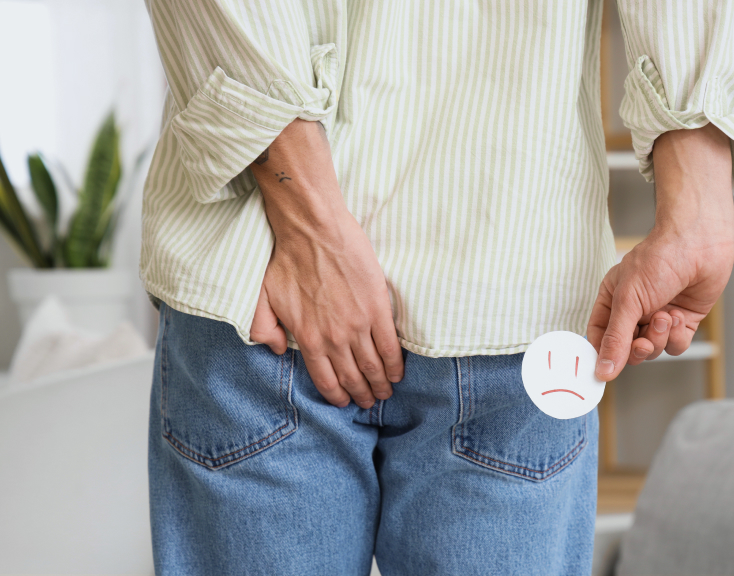Your Colorectal Health, Our Priority
With our comprehensive suite of screening services and treatment options, our experienced colorectal specialist and medical team promise you peace of mind whilst ensuring a strong and healthy colon.


What is anAnal Fissure?
An anal fissure is tearing in the lining of the anus. It can cause pain, bleeding and/or itching.
What causes an Anal Fissure?
It is usually caused by a hard and dry bowel movement which tears the anal lining. Other causes include diarrhoea and inflammation of the anorectal area.
Seek medical attention should you experience symptoms of an anal fissure – typically sharp pain and bleeding during bowel movements.
With proper treatment, the fissure will heal optimally.
How can an Anal Fissure be Treated?
At least 50 percent of fissures heal either by themselves without need for an operation. Application of special medicated cream, use of stool softeners, avoidance of constipation, and the use of sitz baths (soaking the anal area in plain warm water for 20 minutes, several times a day) help to relieve the symptoms and allow healing to occur.
For the more chronic fissure, glyceryl trinitrate ointment may be used to relax the sphincter muscles. This would then improve the blood flow to the lining and allow healing to occur. A common side effect that patients will experience when using this ointment is headache.
Why do some Anal Fissures not heal?
When healing starts after a tear, the area is not as healthy as normal lining. Another episode of hard stools will cause the healing area to tear again. Repeated tearing will result in the tear becoming deeper and deeper. When the muscles of the anus lying below the lining are exposed, the muscles go into spasm. This results in more pain, and as the muscle is tight, stronger force is required to push the stools through and this results in more tearing. In these cases, the relaxation induced by the glyceryl trinitrate ointment is inadequate to allow good blood flow for healing.
What if an Anal Fissure does not heal?
A fissure that does not heal should be re-examined to determine if an underlying problem that prevents healing exists. This could be due to scarring or muscle spasm of the internal anal sphincter muscle. Fissures which continue to cause pain and/or bleeding can be corrected by anal surgery.
Our clinic provides evidence-based treatments for anal fissures to ensure that you are completely healed.
How long does it take to heal after anal surgery?
Most patients can go home on the same day. Complete healing occurs in a few weeks, although pain often disappears after a few days.
Can an anal fissure return after treatment?
Most patients who had anal surgery for anal fissure have no further trouble after surgery.
Can Fissures Lead To Colon Cancer?
No, anal fissures cannot lead to cancer. However, persistent symptoms should warrant careful evaluation as there are other conditions besides fissures that can cause similar symptoms.
Our Colorectal SurgeonColorectal Specialist

Dr Ho Kok Sun
Consultant Colorectal & General Surgeon
MBBS (Singapore), M Med (General Surgery) (Singapore)
FRCS (General Surgery) (Edinburgh), FAM (Singapore)
Dr Ho Kok Sun has been treating anal fissures for over a decade and was the past President of the ASEAN Society of Colorectal Surgeons and the Society of Colorectal Surgeons (Singapore), as well as a founding member of the Eurasian Colorectal Technologies Association. Dr Ho was actively involved in the training of medical students and residents, and has published widely in reputable journals and book chapters. He believes that treatment should always be personalised to the patient’s needs.

